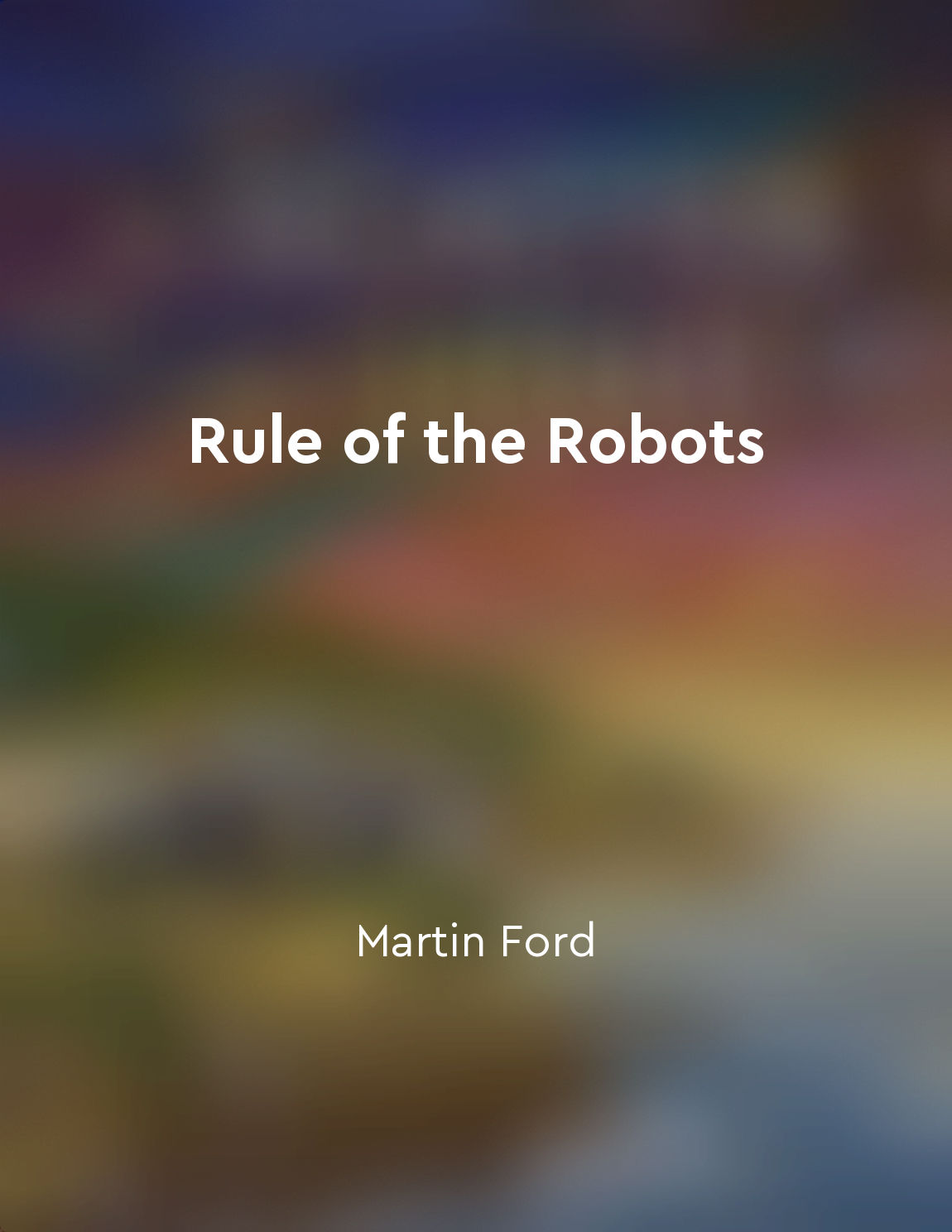AI has the potential to address societal challenges from "summary" of Architects of Intelligence by Martin Ford
AI has the potential to address some of the most pressing societal challenges we face today. One of the most significant ways in which AI can make a positive impact is through its ability to optimize resource allocation and decision-making processes. By analyzing vast amounts of data and identifying patterns that may not be immediately apparent to humans, AI systems can help us make more informed choices about how to allocate resources efficiently and effectively. This can be especially important in areas such as healthcare, where resources are often limited, and decisions can have life-or-death consequences. Another way in which AI can help address societal challenges is by enabling more personalized and targeted interventions. For example, AI-powered healthcare systems can analyze a patient's genetic makeup, medical history, and lifestyle factors to recommend personalized treatment plans that are tailored to their individual needs. This can lead to better health outcomes for patients and reduce the burden on healthcare systems by optimizing the use of resources. Furthermore, AI can play a crucial role in addressing environmental challenges by helping us better understand and mitigate the impact of climate change. By analyzing data from satellites, sensors, and other sources, AI systems can provide valuable insights into the state of the environment and help us develop more effective strategies for conservation and sustainability. This can help us protect endangered species, reduce pollution, and combat deforestation, among other environmental issues. In addition to these specific examples, AI has the potential to drive innovation and economic growth, which can have far-reaching positive effects on society as a whole. By automating routine tasks and freeing up human workers to focus on more creative and strategic work, AI can help businesses become more efficient and competitive. This, in turn, can lead to job creation, increased productivity, and higher living standards for individuals across the globe.- The potential of AI to address societal challenges is vast and varied. From optimizing resource allocation to enabling personalized interventions to combating climate change, AI has the power to transform our world for the better. By harnessing the capabilities of AI in a responsible and ethical manner, we can create a more sustainable and equitable future for all.
Similar Posts

The role of government in addressing job displacement is a topic of debate
The idea of the government's involvement in managing the impact of automation on jobs is a contentious issue. Some argue that t...
Blockchain technology
In the realm of information technology, blockchain technology is often held up as a kind of panacea, a solution to a wide range...
Humanity must adapt to survive
Humanity faces many challenges in the future. As our population grows and our technology advances, we will need to adapt in ord...
Education and retraining programs will be crucial in adapting to the AIdriven economy
As we transition into an AI-driven economy, the role of education and retraining programs becomes increasingly vital. The rapid...

The public should have a say in AI development
When we talk about the future of AI, it's not just about what the technology can do, but also about how it will impact our live...
Machine intelligence can enhance human capabilities
Machine intelligence has the potential to amplify human abilities in ways that were previously unimaginable. By leveraging the ...

Collaboration between humans and machines will define the future
The future lies in the seamless collaboration between humans and machines. This partnership will shape the way we live, work, a...

